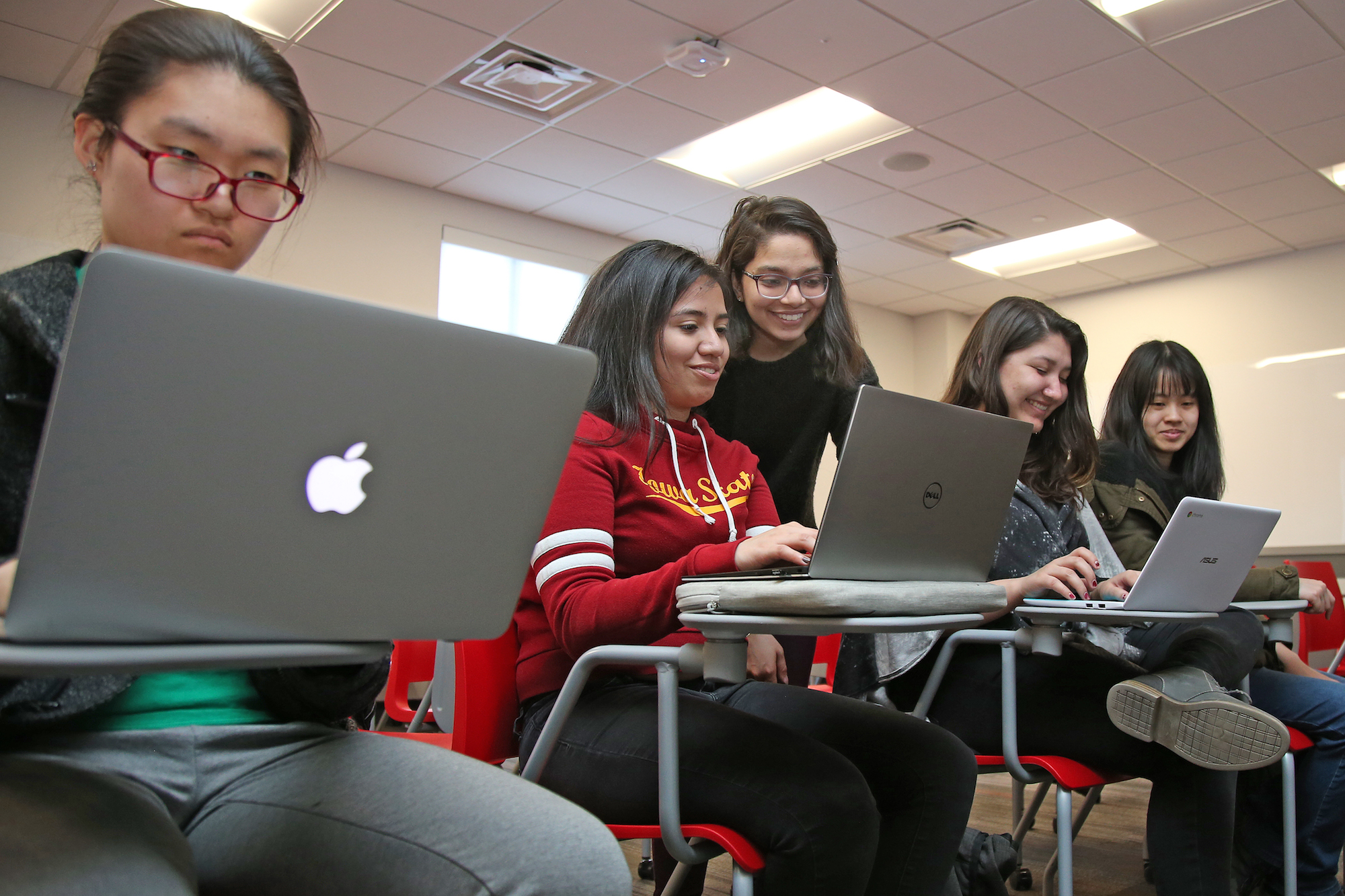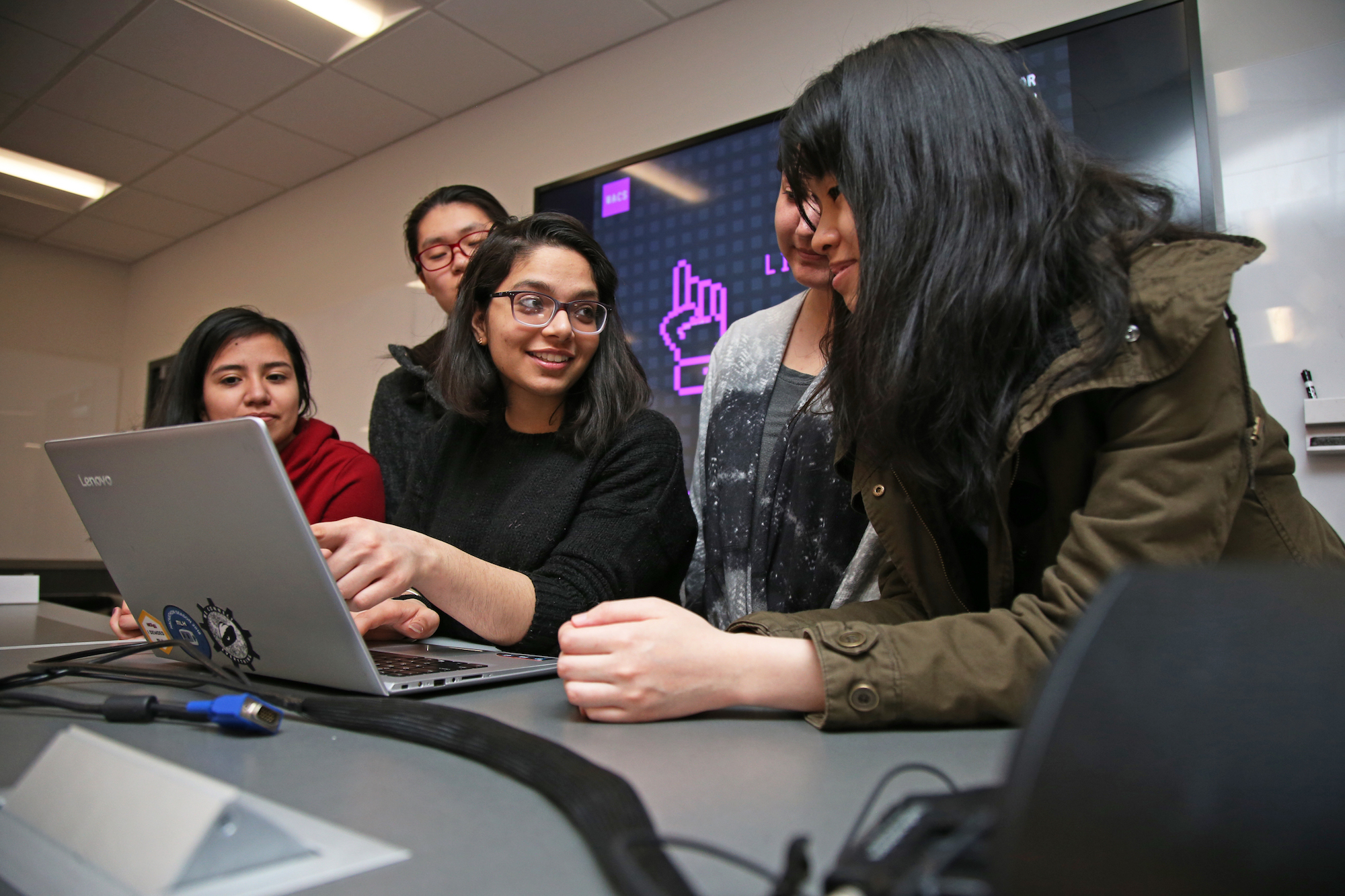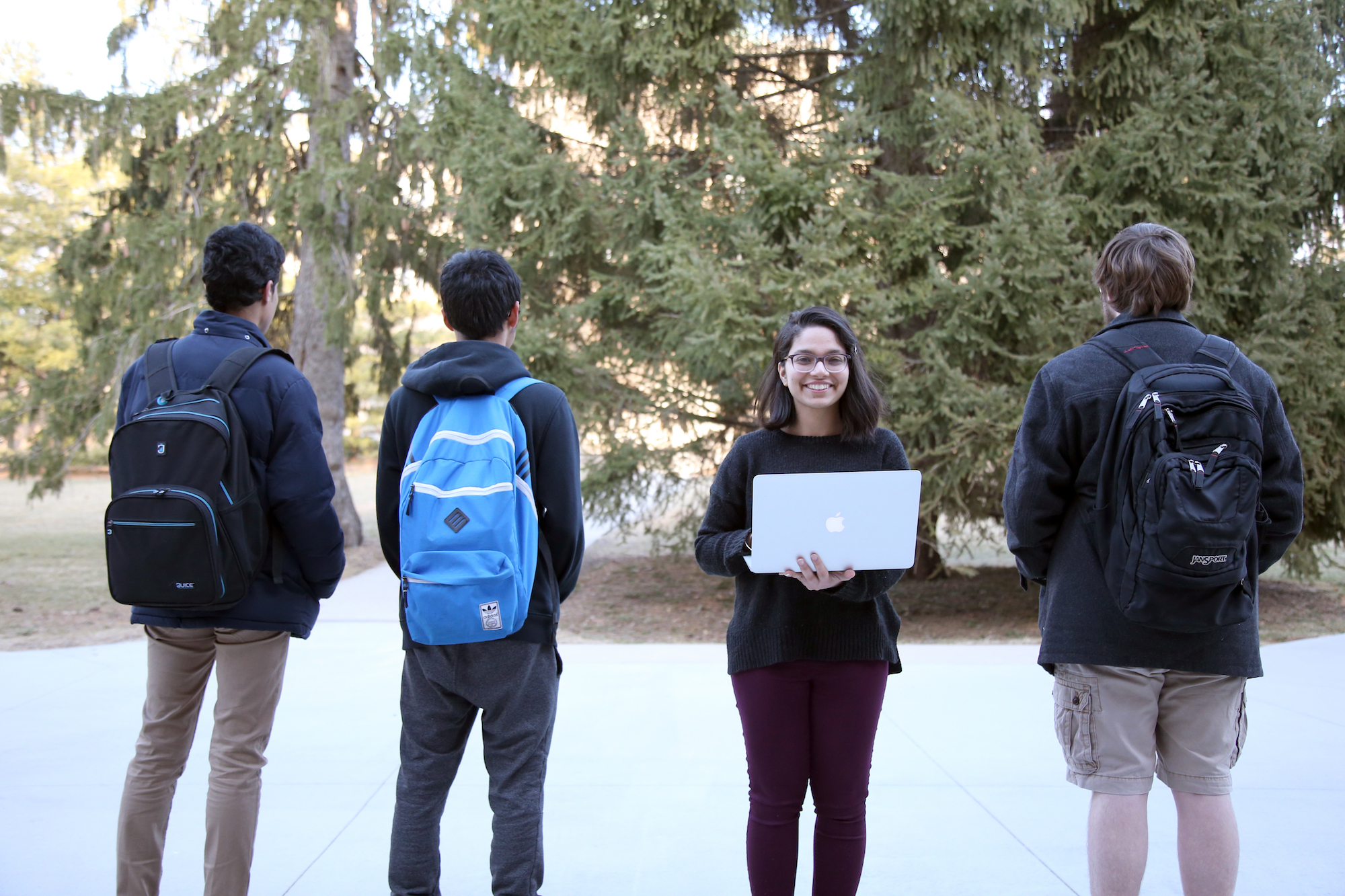A new student organization at Iowa State is empowering women to enter the world of cybersecurity through connecting women to peers and mentors in the field.
“What I like best about the computing field is that one gets to learn so much so quickly and feel rewarded for the work they put in.”
Yamini Mathur (’19 computer science) knew she wanted a career in the computing industry, but she did not know what area. As a freshman computer science major, she participated in HackISU, an “invention marathon” designed to give students an opportunity to experience technology and practice creating with it.
Mathur found a few other women who were interested, formed a team and took advantage of mentorship at the hackathon.

“In the span of two days, we taught ourselves Java and created an Android application called ‘Homework Timer’ which allows you to set a timer for completing your homework and suggests break activities,” Mathur said. “It was a very simple application, but I felt really proud to have created something. What I like best about the computing field is that one gets to learn so much so quickly and feel rewarded for the work they put in.”
Finding common ground
As she started paying closer attention to her own use of technology and how it is used throughout the world, she saw its direct impact and the power to create change and solve problems. She knew the computing industry was where she wanted to make a difference.
She dove into the coursework, but found it challenging and struggled with feeling alone in a male-dominated field. She noticed her male peers also struggling but more easily forming groups and friendships and beginning to work on side projects together.
That is when she joined Women’s Alliance for Cybersecurity (WACS).

“Through WACS, I met women in computer science outside class and we participated in cyber defense competitions and hackathons together,” she said. “It was really nice to have a community to look forward to that is ambitious, motivated and focused. Having the support system also gave me the platform to collaborate with my female peers and form study groups, which helped me with my coursework.”
Women’s Alliance for Cybersecurity was founded by Jamie Kruk (’19 computer engineering) and became an official student organization in spring 2017. After enjoying cyber defense competitions in high school, Kruk wanted to continue in college and was challenged by a recruiter at a career fair to start an all-women team.
“It was really nice to have a community to look forward to that is ambitious, motivated and focused.”
The WACS group started with a handful of members and has more than doubled in size in just two semesters. After volunteering at cyber defense competitions, the team competed for the first time in fall 2017. The team also participated in several smaller capture the flag contests, a portion of a full cybersecurity competition in which teams work against each other to find a file or plant one in the other team’s systems.
Ready for the challenge
“Our participation at the last cyber defense competition had shown me that just like anything else, the cybersecurity field is also not too hard to enter and be successful in, only requiring focused and persistent learning.”
Before attending her first cyber defense competition, Mathur’s only idea of cybersecurity was “male hackers going at an intense coding sprint lasting more than 10 hours.” But, through volunteering at a competition, she learned how teams work together and began building her knowledge of Linux, cryptography and more. At her first cyber defense competition, she was part of a team of women who performed usability checks on software.

“Through WACS we learned that in the real world most of the security tasks are performed as a team, each responsible for a piece of the puzzle,” Mathur said. “Our participation at the last cyber defense competition had shown me that just like anything else, the cybersecurity field is also not too hard to enter and be successful in, only requiring focused and persistent learning.”
In addition to competitions, the club brings in speakers — male and female — who can talk about cyber defense topics and encourage women interested in cybersecurity.
Closing the gender gap
Mathur was inspired by Kaitlyn Bestenheider, a graduate student at Pace University and a regular National Cyber League champion. Despite not having a computer science degree, Bestenheider is pursuing her graduate studies in cybersecurity, and mentors high school students who compete at cybersecurity competitions.
“When she described her growth through her journey — from not being able to turn on her computer at a practice to releasing her guide book on cybersecurity — it made me feel like if I just keep concentrating on learning as much as I can, success will soon follow,” Mathur said.
While speaking at a WACS meeting, Bestenheider encouraged the women to pay it forward.
“Try to mentor younger or less experienced women so that we can fix the gender gap in this industry,” Bestenheider said.
Through connecting a supportive community of women students interested in cybersecurity, and providing learning opportunities, confidence-building and networking with other women in the field, Women’s Alliance for Cybersecurity is doing just that.
